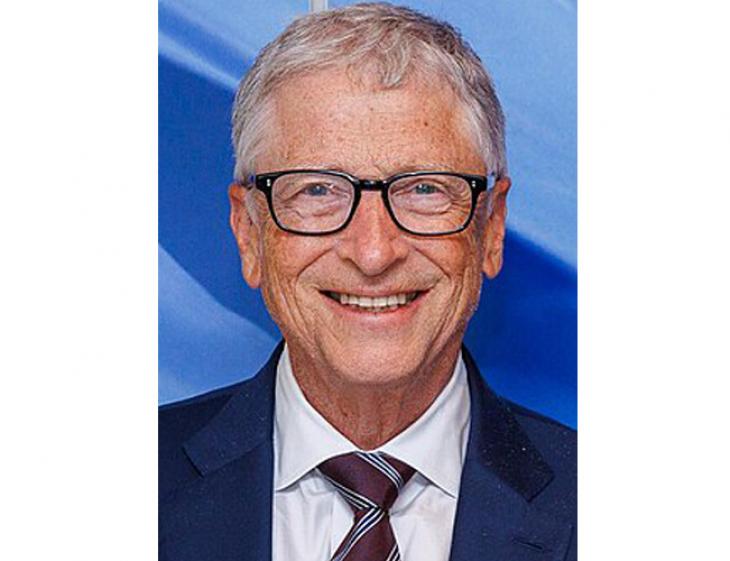
By Publisher Ray Carmen
Before smartphones, before the cloud, before the internet was in every home — there was a young coder in a sweater vest who believed that someday, a computer would sit on every desk and in every household.
They called him crazy. He called it Microsoft.
A Digital Prophet in Analog Times
Bill Gates didn’t invent the computer , he democratized it.
Co-founding Microsoft in 1975, Gates saw what others didn’t: software would be the soul of the machine. In 1980, a pivotal deal with IBM to supply the MS-DOS operating system launched Microsoft into orbit. But it was Windows , with its friendly interface and click-based logic ,that changed the world.
“Software is a great combination between artistry and engineering.”
— Bill Gates
That artistry turned Microsoft into a digital empire. By the mid-1990s, it ran nearly every personal computer in the world. Gates became the richest man alive — not through luxury or inheritance, but by selling the future before anyone else knew they wanted it.
Monopoly, Meet Morality
With power came scrutiny. In 1998, the U.S. government took Microsoft to court for antitrust violations. Gates was famously combative, defending the empire he’d built.
But a shift was coming , not in technology, but in purpose.
In 2000, Gates stepped down as Microsoft CEO. Over the next few years, he began what would become the greatest philanthropic pivot in modern history.
The Gates Foundation: Software Meets the Human Condition
With Melinda Gates, Bill launched the Bill & Melinda Gates Foundation, now one of the most influential forces in global health, education, and poverty alleviation.
Where he focused:
-
Eradicating polio and malaria
-
Revolutionizing sanitation in developing countries
-
Funding vaccine distribution long before COVID made it urgent
-
Elevating public education through data-driven reform
He applied the same logic that built Windows to the world’s toughest problems: identify the bugs, write better code, and scale the solution.
A Legacy of Giving
Gates wasn’t content being the richest ,he wanted to be the most impactful. In 2010, he co-founded the Giving Pledgewith Warren Buffett, challenging billionaires to donate at least half their wealth in their lifetimes.
Even after stepping away from day-to-day roles at Microsoft in 2020, Gates continues to write, speak, and advocate on AI, pandemics, and climate change.
He’s not trying to save the world for headlines.
He’s doing it because the code demands it.
Conclusion: The Engineer of Empathy
Bill Gates didn’t just invent tools.
He engineered access, uplifted voices, and reprogrammed the idea of what tech titans should be. From coder to kingmaker, capitalist to humanitarian, Gates never stopped upgrading, not his software, not his vision, not his impact.




